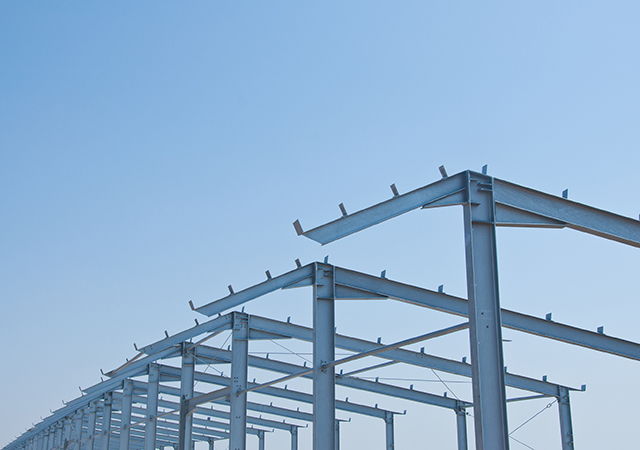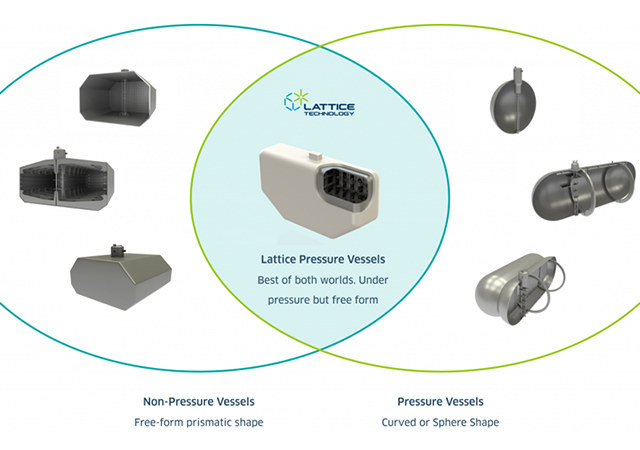
 Image by PhotoDiod BigStock
Image by PhotoDiod BigStock
In the rapidly evolving world of industrial processes, two critical components are taking center stage - pressure vessels and heat exchangers. These essential technologies are poised to play a pivotal role in shaping the future of industrial efficiency, sustainability, and growth.
According to a new report by MarketsandMarkets, the global Pressure Vessels Market is expected to grow from $50.3 billion in 2023 to $62.7 billion by 2028, at a CAGR of 4.5 per cent. Pressure vessels, which are designed to hold gases or liquids at pressures significantly different from ambient levels, are integral to a wide range of industries, including power generation, oil and gas, chemicals, and manufacturing.
The primary drivers behind this market expansion are the surging global energy demand, spurred by population growth, urbanisation, and industrialisation. As the world continues to grapple with increasing energy needs, pressure vessels have become essential components of power generation systems, from traditional fossil fuel plants to emerging renewable energy installations.
"The growth of the pressure vessels market during the forecast period can be attributed to the planned rollout of energy efficiency programs across major countries in North America, South America, Europe, Asia Pacific, and the Middle East & Africa," explains the report.
However, the industry faces certain challenges, such as the high manufacturing and maintenance costs of pressure vessels, as well as the volatile prices of raw materials. Stringent manufacturing standards and quality guidelines further add to the complexity faced by pressure vessel manufacturers.
Segmentation-wise, the power industry is expected to be the largest segment in the pressure vessels market, driven by the high demand for these vessels in boilers and nuclear power plants. North America, with its abundant shale reserves and thriving oil and gas activities, is poised to be the second-fastest growing region, while Asia Pacific is projected to lead the charge, driven by the expanding chemical production and power generation sectors.
HEAT EXCHANGER MARKET: A $32.3 BILLION OPPORTUNITY BY 2029
Alongside the pressure vessels market, the global heat exchanger market is also experiencing a remarkable surge. According to MarketsandMarkets, this market is projected to reach a staggering $32.3 billion by 2029, growing at a CAGR of 7.0 per cent from $23.0 billion in 2024.
The driving forces behind this growth are the surge in industrialisation across emerging economies and the tightening of energy efficiency regulations and emission standards worldwide. Heat exchangers, which facilitate the transfer of heat between two or more fluids, are crucial in improving energy efficiency and reducing environmental impact across a wide range of industries.
The heat exchanger market is dominated by metal materials, such as aluminum, stainless steel, titanium, and copper, prized for their exceptional thermal conductivity and mechanical strength. Among the various heat exchanger types, the shell and tube design maintains its position as the largest segment, thanks to its efficiency, versatility, and easy maintenance.
Geographically, Europe leads the charge in the heat exchanger market, with its diverse and well-established industrial base spanning sectors like chemical processing, oil and gas, power generation, and HVAC. The region's stringent environmental regulations have further fueled the demand for advanced heat exchanger technologies that help industries improve energy efficiency, reduce greenhouse gas emissions, and minimise waste heat.
The competitive landscape in both the pressure vessels and heat exchanger markets is dynamic, with key players vying for market share through mergers, new product launches, and strategic expansions. Companies like Babcock & Wilcox, Mitsubishi Hitachi Power Systems, IHI Corporation, LARSEN & TOURBO LIMITED, and Bharat Heavy Electricals Limited are leading the charge in the pressure vessels market, while ALFA LAVAL, Kelvion Holding GmbH, Danfoss, Exchanger Industries Limited, and Mersen are among the prominent players in the heat exchanger industry.
As industries worldwide strive to improve efficiency, reduce emissions, and meet increasingly stringent environmental regulations, the demand for innovative pressure vessel and heat exchanger technologies is expected to continue its upward trajectory. These critical components will play a crucial role in shaping the future of industrial processes, driving sustainability and growth in the years to come.

